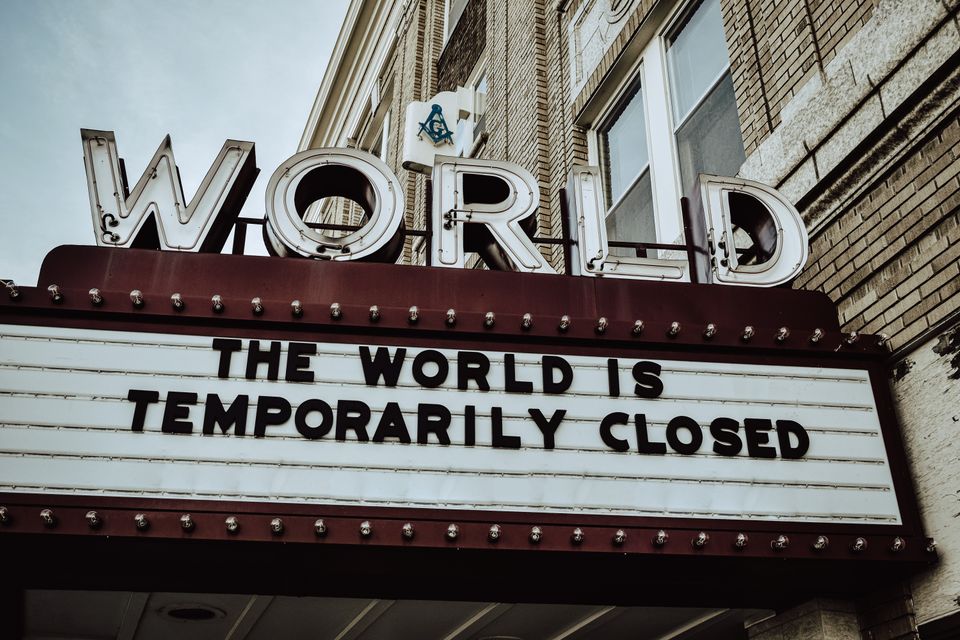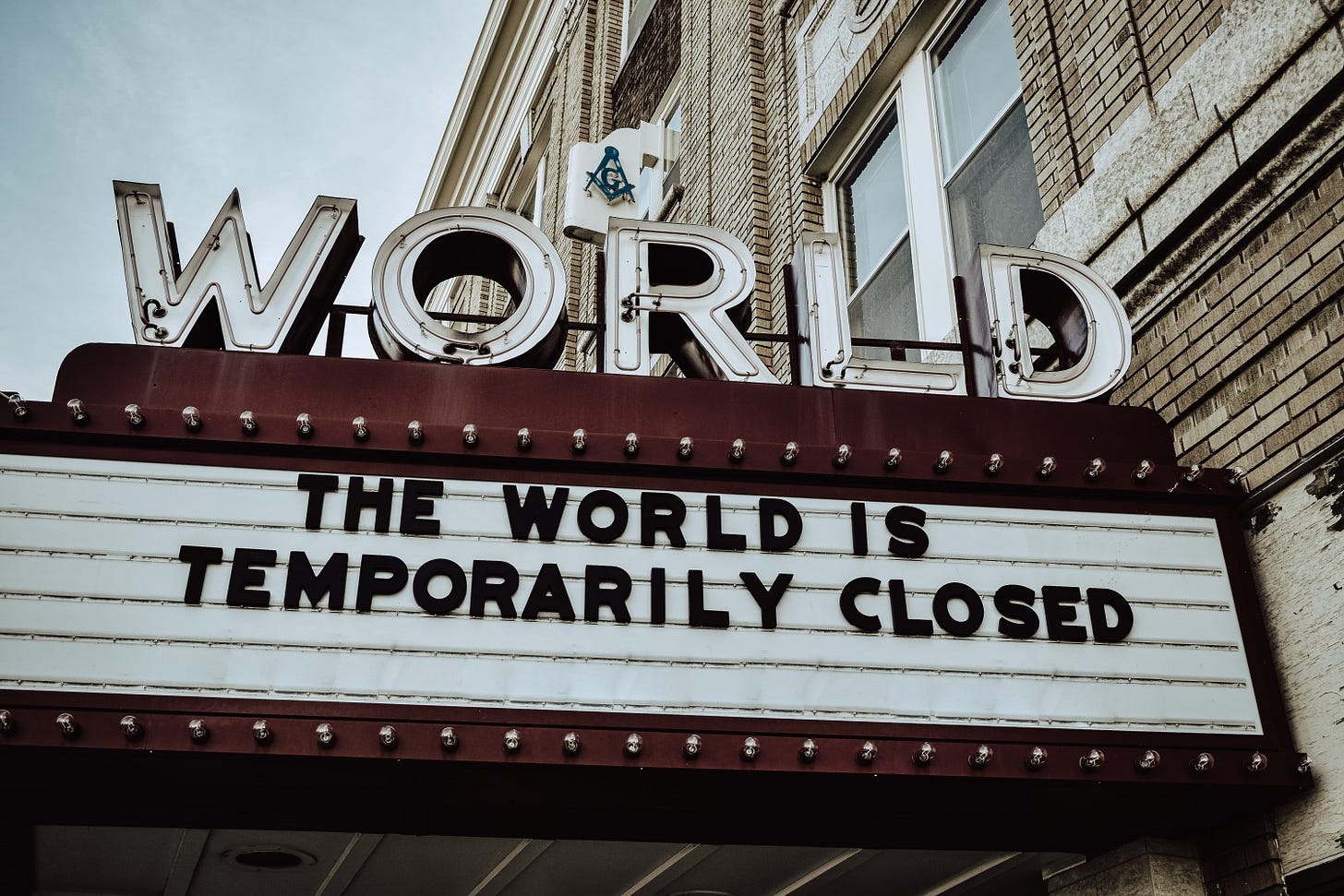A Post-COVID World


We’re looking back on more than a year in this pandemic, and we’re rounding a corner here in the US. It seems the appropriate time to review what we’ve been through, even though we’re all sick of it. I wanted to take the time to break down the past, to go over what we might expect after the all-clear is sounded, and what we should do in preparation for the next pandemic. We’re not out of the woods yet, though; in fact, we’ve started to tick upward again in our national infection rate. Despite a non-FUBARed vaccine rollout, there’s still potential for a fourth wave, and the longer this virus is out in the world, the more likely it is that a variant emerges that has the potential to undo our progress. Now’s not the time to provide an extra host for this virus to get weird in; wear a mask and stay socially distant until we reach herd immunity.
Debrief
We’ve done this before, in a shorter capacity, but let’s really break down what just happened: The entire world faced a life-threatening virus for over a year. Some countries weathered it better than others, but virtually all of them failed in some way or another, and suffered the consequences. In America, an anti-science administration downplayed the virus for months, especially in the pandemic’s infancy, and the character of the nation in addition to the administration’s bungling resulted in a series of escalating waves of casualties.
In the early days of the pandemic we suffered from an embrittled supply infrastructure, which, coupled with a run on PPE, food, and household goods, resulted in bare shelves. Millions lost their jobs, and relief here was not as forthcoming as in other nations. Hospitals were overrun with patients, and thousands died.
While in this pandemic, multiple other disasters occurred: Nashville was hit by a tornado; record wildfires raged in California; police violence against Black people resulted in nationwide protests; a terrorist blew up a block of downtown Nashville (bad year all around, Music City); insurrectionists attempted a takeover of the Capitol and the assassination of key politicians; and a rare winter storm froze Texas solid.
Much like climate change, COVID-19 acts as a threat multiplier, exacerbating the dangers faced among specific disasters. Getting arrested at a protest during the pandemic could result in your being infected, on top of already facing down a band of cops—it’s hard to tell what effects CS gas and pepper spray may have had on those among the crowds of protesters who were recovering or soon to suffer from COVID. Becoming unhoused during COVID is an extremely worrying situation, and there were many ways that could become possible this past year. Getting infected isn’t the only issue, either—all those infections took up medical resources, meaning any other life-threatening illness or injury may not be treated as adequately.
What Comes After
With the end of the pandemic, assuming the administration extends rent-relief that long, we can expect that there will be a wave of houselessness, as folks without jobs are forced out of their homes once those deferred bills come due. A disconcerting number of people are reporting they struggle with food security, rent and mortgages, and other monthly bills. The economy was already headed for a recession before COVID, and with it, there’s not much chance that we rebound overnight. This means the issues that are looming now are not going to dissipate.
When people are in dire straits, they do what they have to in order to survive. That is, of course, met with increased police violence against those communities that were deprived of adequate relief. We can count on this because of Biden’s stance on policing: it’s good and the police need more money. That’s not a great way to come out of this pandemic.
While we won’t be able to help everyone, the best way to move forward in this situation is to prevent it; find local (or not) mutual aid groups that are providing rent relief and other assistance, and donate your money or time to these causes. As we approach herd immunity, we’ll be in a better situation to donate time over money, but our money is best spent right now trying to close the proverbial barn door.
Two minor notes before we move on: your body relaxes once out of a dangerous situation, and the fight or flight response that can sustain you through prolonged periods will run dry. Once it does, don't be surprised if you're exhausted anew, or if you feel sick, or depressed. These are valid reactions to the end of a staggering, world-changing event. Nobody is going to get right back to normal. Don’t punish yourself for feeling off.
I also don't want anyone to forget the incredible surge in mutual aid across the country. Where the state fails, people have stood up and taken care of one another. That's commendable, and a significant reason to feel hopeful going forward.
The Next Pandemic
I spoke briefly about this subject before: we're probably not going to have to wait another hundred years for our next COVID-19; it will likely happen in our lifetimes. It could honestly start tomorrow. Climate change and, frankly, capitalism, drives animals into our turf, and us into their turf, respectively. This exposes humans to diseases once limited to other species. We might get hit with another coronavirus (both the SARS and MERS outbreaks were coronaviruses), or we might get a curveball thrown at us. True story: on a call about COVID precautions while at work, I received an email from a regional emergency system about the re-emergence of Ebola in Guinea! Isn't 2021 grand?
Pandemics can be phenomenally different from one another. COVID was, in many respects, a pandemic on easy mode. Should SARS or MERS mutate even slightly, we could be facing a far more lethal virus. And beyond that, methods of transmission may be different for the next round. We might face a bloodborne illness, one transmitted through water, or one promulgated by rats and fleas. It’s less likely that these would be the methods of transmission because, unlike in Plague Inc., we’re actually pretty good at shutting down these routes. Airborne is a little tougher. As of this writing, capitalism hasn’t figured out how to get us to pay for air. The main thing to take away from the possibilities of the next pandemic is that things could be a lot worse—and I don’t say that to diminish COVID-19. It’s plenty bad. But imagine how we felt last March, the lockdowns just cinching into place, how we looked at each other on the street and at work and in the grocery, if instead of coughing and a fever, you bled from your orifices. Imagine that instead of a 1-2% mortality rate, we faced a 25%, a 50%, a 75% rate. If you thought civilization ground to a halt last year, this would be what that really looks like.
Here is where we try to remember the lessons learned from COVID-19, and apply them, as best we can, to potential disasters going forward.
Supplies get short. Infrastructure and supply chains can collapse, meaning basic resources like food and toilet paper can disappear overnight. Having had a serious pandemic in their memory, I can guarantee you that the next time more than three co-workers sneeze in a crowded room, most people will be running for the store to buy hand sanitizer. Stock up on non-perishable food, water (it’s just always a good idea), toiletries, etc. Remember that if we get hit with something more serious than COVID, it may not feel safe to go anywhere even with proper PPE.
- Regarding PPE: it wouldn’t hurt to make sure you have a small stock of gloves, masks, maybe even gowns. At this point in the pandemic, you’re not hurting hospital supplies to make these purchases.
- The economy will take a dive. I’m not about to talk about your savings account—if you’re like me, you don’t make enough money to sock that much away—but remember what businesses got wiped out. If you work within those systems, try to plan accordingly. Distancing yourself from capitalism will help you here. Grow your own food, learn to can, learn to repair your house or car yourself. I don’t say this dismissively, these things are hard, but they are extremely helpful skills.
- Morale will take a dive, too. Be cognizant of how you feel now, the strategies you’ve created to cope, and tuck them away for safe keeping. If they’re not healthy or sustainable strategies, like excessive drinking, look for alternatives. As exhausted as we all are by Zoom meetings at this point, camaraderie is integral to mental health. Make time to talk to friends and family.
The thing about most any disaster is that you can spin its lessons to be used for another. Any kind of shock, whether it be economic, political, biological, meteorological, or cosmological is going to result in the same sort of basic response: you'll need supplies; you'll need to keep your people safe; you'll need to help others. There are so many ways to look back on this horrid year as proof of concept for mutual aid and leftist political goals as worth our while. Let's take these ideas and run with them.
